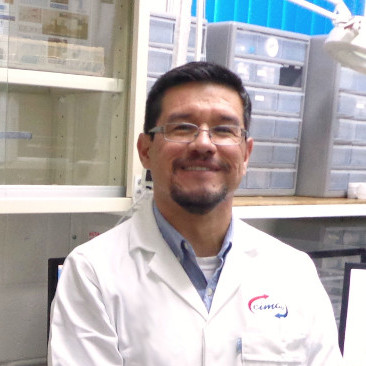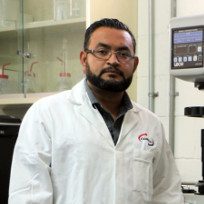Research, Innovation and Knowledge Transfer
Metals are undoubtedly still the foundation of the current development of our modern life style. Even after the discovery and development of many smart and innovative materials, the technical and economic progress of our society will still depend upon the technological advances and breakthroughs in the metals industry, and on the ferrous and non-ferrous alloys. Thus, the main activities of this department are oriented towards the study, design, innovation and improvement of processes involving these materials.
The objective is to develop and motivate the research done in each of the areas within the department, to form highly trained and qualified graduate students, and transfer of knowledge to industry through bonding projects and specialized technical services.
The primary strength of this department is based on the academic expertise of its research staff. The high scientific and technological capabilities of the staff and their work experience is a guarantee for their clients.
Within the scientific and technological nature of the department, the development of technical projects for the industry is commonly found, often those related with industries such as: automotive, chemical, energy generation, petrochemical and aeronautical, among others.
The department of Metallurgy and Structural Integrity has three major research areas:
and Processes
The department’s specialists continuously work on basic and applied research projects, from the study of the effect of chemical composition, microstructure and mechanical properties of materials related to their processing routes, to the development of new nanostructured alloys with potential application in various kinds of industry, as well as in materials selection for specific needs.
The functionality, security aspects and reliability of materials used for piping, reactors, valves, structures, pressure vessels, automotive and aeronautic components among others, are based upon the understanding of the materials behavior both from a theoretical and experimental point of view.
The department also focuses its attention on the synthesis, characterization and analysis of the behavior of new biomaterials, superalloys and micro and nanostructured coatings for specific applications.
Within the department 11 laboratories are found capable of conducting research related projects, as well as to meet demands for experimental and simulation work requested by internal and external users.
Academy, Mobility and Collaboration
The formation of high quality human resources within our masters and doctorate graduate programs in materials science represents a strategic point for the department.
As part of its academic duties, the mobility of students under a mixed scholarship program is promoted, which in turn encourages undergraduate students to carry out their professional residences and/or BSc. theses at our facilities under the supervision of our academic staff.
The implementation of multidisciplinary projects is also encouraged with both national and international institutions, with the aim of boosting the scientific and technological work of its researchers through postdoctoral and sabbatical leaves.
Linkage with Productive Sector
The Department of Metallurgy and Structural Integrity has an important activity oriented to transfer knowledge to the industry through applied research projects, as well as to perform specialized technical services to the sector to generate its own economic revenue.






